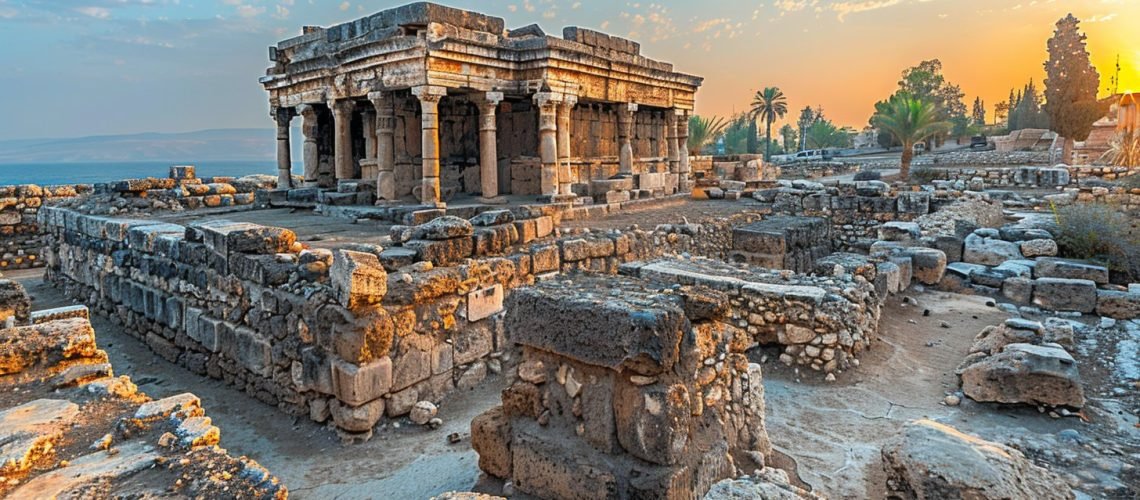The question of whether Hebrew was ever lost fascinates many. Hebrew has a long and rich history intertwined with Jewish identity, culture, and religion.
The Origins and Early Use of Hebrew
Hebrew is one of the oldest languages still in use today. It first appeared in written form during the late second millennium BCE. Originally, it was part of the West Semitic group of languages.
Biblical Hebrew Period
Biblical Hebrew existed predominantly as a spoken language between 1200 BCE and 200 CE. This era saw the composition of most of the Old Testament or Tanakh. Used mainly for religious and liturgical purposes, its poetical use also became prominent in various Psalms and Proverbs.
Hebrew in the First Temple Period
During the First Temple period, Hebrew served not only as a sacred but also a common spoken language. Evidence from ancient inscriptions reveals its widespread use in administrative, commercial, and daily activities.
Transition to Liturgical and Scholarly Language
When the Babylonian Exile occurred around 586 BCE, Jews faced significant changes. They were dispersed across various regions, leading to linguistic shifts.
Exilic and Post-Exilic Adaptation
In exile, Aramaic rose in prominence among Jews. Yet, Hebrew retained prestige in religious and literary contexts. Examples include works like the Dead Sea Scrolls, which contain books in both Hebrew and Aramaic.
Talmudic Period and Beyond
With trading empires spreading Greek and Latin, Hebrew’s daily spoken use declined rapidly. Despite this decline, Hebrew maintained prestigious status through its liturgical use. Clergy and scholars ensured that Biblical texts continued to be studied and copied meticulously in Hebrew.
The Medieval Period: Decline and Preservation
The Middle Ages witnessed a complex relationship with Hebrew. Jewish communities spread across Europe, North Africa, and the Middle East engaged in varied linguistic practices.
Cultural and Poetical Revitalization
In places like Spain under Muslim rule, Sephardic Jews mastered a golden age of Hebrew poetry. Master poets such as Moses Ibn Ezra and Judah Halevi crafted exquisite works, preserving poetical use while living in a primarily Arabic-speaking society.
Scholarly Traditions and Liturgy
Throughout Ashkenazi and Sephardi communities, Hebrew flourished in scholarly texts. Commentaries on the Torah and Talmud were produced extensively. Communal prayer services also entailed continuous liturgical use of Hebrew, ensuring familiarity remained within the community.
The Renaissance of Modern Hebrew
The late 19th century sparked revolutionary change. Efforts led by Eliezer Ben-Yehuda aimed at reviving Hebrew as a modern spoken language. This movement fundamentally reshaped the landscape.
Zionist Movement’s Role
The revival enjoyed substantial support from the Zionist movement, which viewed Hebrew restoration as central to Jewish national pride. Hebrew schools (ulpanim) quickly emerged in Palestine, now Israel, cultivating new fluent speakers.
Statehood and Standardization
Upon Israel’s establishment in 1948, Hebrew was declared an official language alongside Arabic. State institutions committed to teaching Hebrew and broadcasting media in Hebrew solidified its modern usage.
Contemporary State of the Hebrew Language
Today, Hebrew enjoys robust use throughout Israel and diaspora communities. Courses at institutes like Ulpan Integraliah make learning accessible globally.
Preservation Through Literature and Media
Modern Israeli literature spans a wide range of genres. Newspapers, television channels, and films produced solely in Hebrew contribute significantly to its daily practice. Furthermore, Hebrew songs and radio stations enjoy popularity.
Educational Initiatives
Ulpan courses remain widespread and integral in language acquisition. These courses foster immersive environments where learners practice conversational Hebrew intensively. Located in Tel Aviv and available online, they cater to diverse individuals worldwide wishing to master the language.
Considering the intense historical journey and transformative phases Hebrew underwent draws numerous insights about cultural resilience. Whether enduring times of decline or moments of rejuvenation, the story of Hebrew underscores an intriguing narrative woven into the fabric of Jewish heritage, serving as a testament to communal strength and dynamic evolution.


